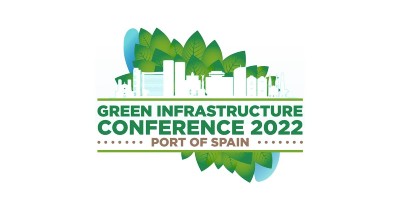Caribbean Needs to Send Strong Message to International Community on Impact of Climate Change
PORT OF SPAIN, Trinidad – Trinidad and Tobago Tuesday said it intends joining the rest of the Caribbean in sending a “clear, strong, collaborative message” to the international community regarding the impact of climate change.
 Planning and Development Minister, Pennelope Beckles, addressing the launch of the Caribbean Green Infrastructure Conference here, said that while climate change has had a global impact, it has had “even greater catastrophic effects” on small island developing states (SIDS) including Trinidad and Tobago.
Planning and Development Minister, Pennelope Beckles, addressing the launch of the Caribbean Green Infrastructure Conference here, said that while climate change has had a global impact, it has had “even greater catastrophic effects” on small island developing states (SIDS) including Trinidad and Tobago.
The conference is a joint venture between the National Gas Company (NGC) and the IAMovement, a non-profit organization which was founded in 2014 by a group of young people in Trinidad and Tobago who felt a strong common need to effect positive environmental and social change. A number of other organizations and financial institutions such as the Inter-American Development Bank (IDB) and the Inter American Institute on Agriculture (IICA) are also involved in the sponsorship of the event.
The event here comes ahead of the 27th Conference of the Parties (COP27) climate summit to be held in Egypt from November 6-18.
Beckles said that Trinidad and Tobago is preparing its participation for the conference, telling the delegates “we are today, as we speak, conducting a preparatory consultation with stakeholder groups on issues to be addressed at COP27, and in the coming weeks we will also conduct stakeholder sessions regarding the UN’s Conference on Biodiversity, also known as COP15”.
She said the conference in Egypt “will allow our Caribbean region to represent our people and again approach the global North to deliver a clear, strong, collaborative message not only seeking heartfelt support, but more so to lobby for climate justice on behalf of our region”.
She told the conference that SIDS contribute the least to global warming and emissions but yet they suffer the greatest losses and damage due to climate-related crises.
“Steps towards the conservation and management of our limited land resources, and building resilience are crucial,” Beckles said, noting that people can reduce their carbon footprint by planting trees and through maintenance, subsistence gardening to subsidize food, imports and improving the resilience of the land to climate-change impacts.
“It is baffling why we have not, as a global community, utilized and institutionalized more of these solutions throughout our development plans and individual nations’ development trajectories,” Beckles said, speaking about the vetiver grass, a perennial bunchgrass of the family Poaceae, that she believes has the capacity to offset carbon emissions.
She said this could be done “through sequestration, as well as its serving as a low-cost solution to adaptation through improvement of land integrity, especially in areas where erosion due to climate events is a chronic problem.
“The vetiver system is even used as a source of livelihood-generation, as the hedges can be harvested for use in the production of handicraft and indigenous products,” she said, praising the number of young people at the event here.
“These are the faces that give me the energy to lobby for better, to be a champion for climate justice, and to be an advocate today for greener investments and diversified portfolios that can lead us to a pathways that we all can enjoy tomorrow.”
The organizers said that the two-day hybrid forum will serve as a space for the sharing of technical knowledge and opportunities for wide scale adoption and scaling of green infrastructure across the region.
“The successes of Vetiver System (VS) as a green infrastructure solution achieved through the BOV project will serve as one example among many; introducing technical guidelines to core governmental stakeholders in the Planning and Infrastructure Ministries; while also providing parallel technical reports, academic studies, panel discussions and technical Insights by international experts on Green Infrastructure initiatives and Green Finance mechanisms.”


